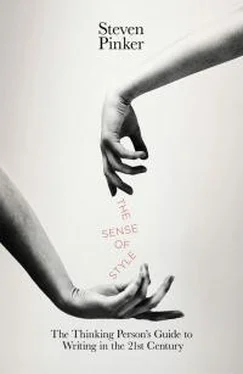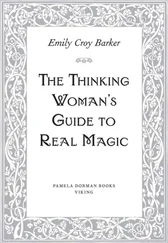But the cognitive difficulty of mentally undoing the movement rule, combined with the historical disappearance of case-marking from English (except for the personal pronouns and the genitive ’s ), has long made it hard for English speakers to keep track of the distinction. Shakespeare and his contemporaries frequently used who where the rules would call for whom and vice versa, and even after a century of nagging by prescriptive grammarians the who-whom distinction remains tenuous in speech and informal writing. Only the stuffiest prig would use whom to begin a short question or relative clause:
Whom are you going to believe, me or your own eyes?
It’s not what you know; it’s whom you know.
Do you know whom you’re talking to?
And when people do try to write with whom, they often get it wrong:
In 1983, Auerbach named former Celtics player K.C. Jones coach of the Celtics, whom starting in 1984 coached the Celtics to four straight appearances in the NBA Finals.
Whomever installed the shutters originally did not consider proper build out, and the curtains were too close to your window and door frames.
The exploration of syntactic trees in chapter 4 turned up an especially common fumble of whom. When the deep-structure position of the wh- word is the subject of a clause (demanding who ), but it occurs adjacent to a verb which takes the clause as its complement (whispering whom ), writers lose sight of the tree and allow their eyes to be caught by the adjacent verb, resulting in The French actor plays a man whom she suspects __ is her husband (pages 101 and 102). These sequences have been so common for so long, and arouse so little reaction even in many careful writers, that some linguists have argued that they are no longer errors at all. In the dialect of these writers, they argue, the rules for whom call for it to be used when it links to the position following a verb, even if it is the subject of a clause. 39
Like the subjunctive mood, the pronoun whom is widely thought to be circling the drain. Indeed, tabulations of its frequency in printed text confirm that it has been sinking for almost two centuries. The declining fortunes of whom may represent not a grammatical change in English but a cultural change in Anglophones, namely the informalization of writing, which makes it increasingly resemble speech. But it’s always risky to extrapolate a downward slope all the way to zero, and since the 1980s the curve seems to be leveling off. 40Though whom is pompous in short questions and relative clauses, it is a natural choice in certain other circumstances, even in informal speech and writing. We still use whom in double questions like Who’s dating whom?, in fixed expressions like To whom it may concern and With whom do you wish to speak?, and in sentences in which a writer has decided not to strand a preposition at the end of a clause but to pied-pipe it to the front. A scan of my email turns up hundreds of hits for whom (even after I discarded the ones with the boilerplate “The information in this email is intended only for the person to whom it is addressed”). Here are a few unmistakably informal sentences in which whom is so natural as to be unnoticeable:
I realize it’s short notice, but are you around on Monday? Al Kim from Boulder (grad student friend of Jesse’s and someone with whom I’ve worked a lot as well) will be in town.
Not sure if you remember me; I’m the fellow from Casasanto’s lab with whom you had a hair showdown while at Hunter.
Hi Steven. We have some master’s degree applicants for whom I need to know whether they passed prosem with a B+ or better. Are those grades available?
Reminder: I am the guy who sent you the Amy Winehouse CD. And the one for whom you wrote “kiss the cunt of a cow” at your book signing. 41
The best advice to writers is to calibrate their use of whom to the complexity of the construction and the degree of formality they desire. In casual prose, whom can be reserved for the object of a preposition and other positions in which who would be conspicuously wrong; all other uses will sound pompous. In formal prose, a writer should mentally move the wh- word back to its original position in the tree and choose who or whom accordingly. But even in formal prose, an author may want a voice that is lean and direct rather than ornate and flowery, and in that case who has a place in simple constructions. If William Safire, who wrote the New York Times ’ “On Language” column and coined the term language maven in reference to himself, could write, “Let tomorrow’s people decide who they want to be president,” so can you. 42
QUANTITY, QUALITY, AND DEGREE
The rules of usage we just examined were centered on grammatical form, such as distinctions among grammatical categories and the marking of tense and mood. But other prescriptive rules—those that govern the expression of quality, quantity, and degree—are alleged to be closer to the truths of logic and mathematics than to the conventions of grammar. To flout these rules, the purists claim, is no mere peccadillo but an assault on reason itself.
Claims of this kind are always fishy. Though language certainly provides writers with the means to express fine logical distinctions, none of the distinctions is mechanically conveyed by a single word or construction. All words have multiple meanings which must be sorted out by the context, and each of those meanings is far subtler than the ones invoked by purists. Let’s examine some of the sophistry behind claims that issues of usage can be settled by logical or mathematical consistency.
absolute and graded qualities ( very unique ).They say you can’t be a little bit married or a little bit pregnant, and purists believe that the same is true for certain other adjectives. One of the commonest insults to the sensibility of the purist is the expression very unique and other phrases in which an “absolute” or “incomparable” adjective is modified by an adverb of degree such as more, less, somewhat, quite, relatively, or almost. Uniqueness, the purists say, is like marriage and pregnancy: something is either unique (one of a kind) or not unique, so referring to degrees of uniqueness is meaningless. Nor can one sensibly modify absolute, certain, complete, equal, eternal, perfect, or the same. One may not write, for instance, that one statement is more certain than another, or that an inventory is now more complete, or that an apartment is relatively perfect.
A glance at the facts of usage immediately sets off Klaxon horns. Great writers have been modifying absolute adjectives for centuries, including the framers of the American Constitution, who sought a more perfect union. Many of the examples pass unnoticed by careful writers and are approved by large majorities of the AHD Usage Panel, including nothing could be more certain, there could be no more perfect spot, and a more equal allocation of resources . Though the phrase very unique is universally despised, other modifications of unique are unobjectionable. Martin Luther King wrote, “I am in the rather unique position of being the son, the grandson, and the great grandson of preachers.” The New York Times science section recently had an article which said, “The creature is so unique in its style and appearance that the biologists who discovered it have given it not just its own species name … but have declared that it is an entirely new phylum.”
Читать дальше












